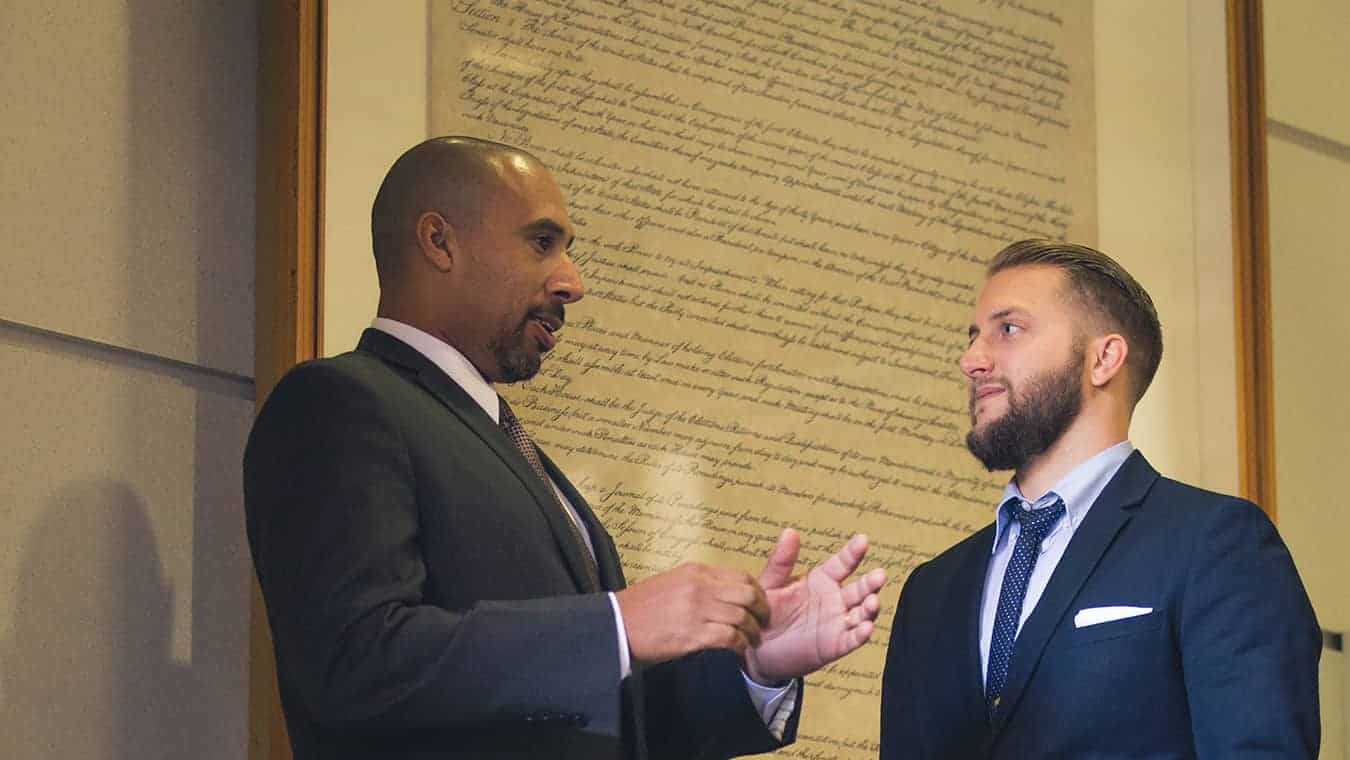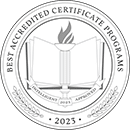
Certificate of Graduate Studies in International Relations
The Certificate in International Relations, offered online and on campus, is designed for those pursuing a significant international component to their work. You may earn a 12-credit (4 course) certificate of graduate studies in a targeted discipline, either to expand your degree program or as a stand-alone certificate. Through this program, explore how you can grow as a principled leader in government for the health and prosperity of our nation and our world. You can be equipped to analyze key developments — including the role of religion, area studies of specific regions, and analysis of U.S. policy in the international arena.
- Understand the democracy and democratization, and the biblical principles surrounding them.
- Choose coursework, from Mid-East politics and human rights to American foreign policy and international political economy, based on your goals and interests.
This certificate may help advance your career in think tanks, international organizations, or federal agencies by equipping you as an expert in your field.
Please complete the Request Information form on this page to learn more about this program.
Select 4 courses (12 credits) from the list below:
2024-25 Semester Check-In Deadlines
All students are expected to check-in for the semester two weeks before the session start date. Students should apply, be accepted, enroll in their first courses, and confirm a plan to pay for their courses prior to this date.
| Session | Semester Check-In | Session Start Date |
|---|---|---|
| Session A | Friday, August 9 | Monday, August 19 |
| Session B | Friday, October 11 | Monday, October 21 |
| Session C | Wednesday, January 8 | Monday, January 13 |
| Session D | Friday, March 7 | Monday, March 17 |
| Session E | Friday, May 2 | Monday, May 12 |
| Session F | Friday, June 13 | Monday, June 23 |
The Certificate of Graduate Studies offers an excellent opportunity for those not requiring a master’s degree. This option is often used by those needing continuing education credits or for those who wish to complement their existing degree with additional training for career advancement. Upon completing the certificate, students have the option of applying to the master’s program, and if accepted, all courses taken toward the certificate transfer in.
Application Requirements
Step 1: Apply to Regent University
Submit your application using the Regent University Online Application.
Note: If you are unable to complete our application due to a disability, please contact our Admissions Office at 757.352.4990 or admissions@regent.edu and an admissions representative will provide reasonable accommodations to assist you in completing the application.
Step 2: Submit Your Unofficial Transcripts
Submit your unofficial transcripts to regent.edu/items.
Upon submitting your application, you will receive an email requesting authorization for Regent University to obtain your official transcripts from your U.S. degree-granting institution. International transcripts must be evaluated by a NACES, AACRAO or NAFSA approved agency.
Step 3: Submit Your Government-Issued ID
To ensure academic integrity, Regent University requires a copy of a government-issued ID. Please submit a scanned copy or photograph of it to regent.edu/items.
Please feel free to contact the Office of Admissions at 757.352.4990 or admissions@regent.edu should you have any further questions about the application process.
Note: All items submitted as part of the application process become the property of Regent University and cannot be returned.
| Certificate of Graduate Studies | Tuition Cost Per Credit Hour | Total Credits | Tuition Cost for Certificate |
|---|---|---|---|
| American Government | $695 | 12 | $8,340 |
| Cyber Practitioner Preparation | $695 | 9 | $6,255 |
| Cybersecurity Policy | $695 | 12 | $8,340 |
| International Relations | $695 | 12 | $8,340 |
| Law & Public Policy | $695 | 12 | $8,340 |
| Middle East Politics | $695 | 12 | $8,340 |
| National Security Studies | $695 | 12 | $8,340 |
| Political Campaign Strategies & Management | $695 | 12 | $8,340 |
| Public Administration | $695 | 12 | $8,340 |
| Terrorism & Homeland Defense | $695 | 12 | $8,340 |
Student Fees Per Semester
| University Services Fee (On-Campus Students) | $850 (Fall & Spring) $700 (Summer) |
| University Services Fee (Online Students) | $700 |
*Rates are subject to change at any time.
Whether you are a prospective student or a current student, your questions matter. Please take a few moments to skim our Frequently Asked Questions. If you cannot find the answer to your question, please contact us.



